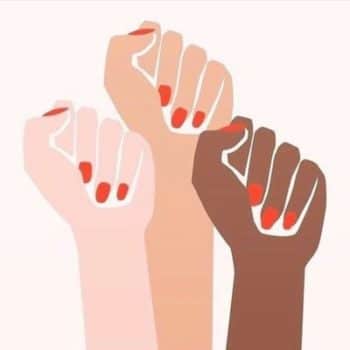A Mother’s Pain: Why You Can’t Save Your Mother

Women’s capacity for empathy has been exploited in our culture; distorted into guilt, a sense of obligation, emotional care-taking, codependency, and self-recrimination. These distortions can paralyze us when we feel the desire to express our true power in our lives. A common dynamic that many adult daughters experience is the compulsion to rescue, fix, and heal their mothers. This is complicated by the fact that many older mothers frequently present their emotional problems to their daughters feeling entitled to significant and intensive support. While a mother’s pain is real and valid, it is not yours to fix, soothe, or heal.
For those of us who have mothers who have been unable to claim their own power in their own lives it can seem very frightening to do it for ourselves. Loving ourselves may feel foreign. It’s a skill that we are all being called to learn.
How a Mother’s Pain Shows Up
A mother’s pain may show up in various forms:
- An unhappy marriage
- Addictions and/or mental illness
- The dramas that may play out in her own relationships
- Illness, health problems, disabilities
- Loneliness and fears of aging
- Financial problems
There are legitimate ways that we can support our mothers that do not deplete us emotionally. And then there are other ways that our mothers may ask for support that are not appropriate, that may violate our boundaries, and keep us stuck in a cycle of guilt, exhaustion, and self-doubt. We may comply with inappropriate demands or behaviors out of love and compassion, but it is not sustainable if our basic well-being is increasingly diminished.
A Mother’s Pain and Dysfunctional Enmeshment
If you acutely feel your mother’s pain, shift how you show up in life based on her pain, or have a history of self-sabotage, you may be participating in dysfunctional enmeshment. In order to express and embody our power, we have to severe any threads of dysfunctional enmeshment we have with our mothers.
How Dysfunctional Enmeshment Shows Up
The dysfunctional enmeshment between mothers and daughters can show up in many ways:
- Mother using the daughter as comforter and dumping ground for her unprocessed emotions
- Daughter needing mother’s approval on all aspects of her life before she’s able to feel good about herself and her choices
- Mother finding comfort in having her daughter as a “pet” who always agrees with her and conforms to her views and beliefs; rejects daughter if she expresses independence
- Mother using the daughter as a narcissistic tool to bring attention and praise back to herself
- Daughter feeling overwhelmed with mother’s needs; spending an inordinate amount of energy worrying about her mother’s problems and how to solve them
- Mother must speak to daughter hourly, several times daily, or even daily in order to maintain her own emotional stability
- Mother feels entitled to access and/or control over major aspects of her daughters’ life, from physical items to personal details and information
Your Mother’s Pain and Her Avoidance
Mothers usually do these things totally unconsciously and unintentionally as a way to relieve their own pain and avoid their own unresolved personal challenges. Yet mothers who use their daughters in these ways are exploiting their daughters’ empathy in a patriarchal fashion.
Mothers must recognize and own the ways that they may be unconsciously holding their daughters down because of their own unresolved issues.
Mothers must own the patriarchy within themselves. If mothers are unwilling to do so, daughters must stand firm and claim their own right to themselves and their own lives.
How to Heal the Exploitation of Your Empathy
In order to come into balance and heal the exploitation of our empathy, daughters need to refuse to feel guilty for their desire and ability to be powerful and independent. Even if that means rejection from our mothers when we set clear, healthy boundaries in the relationship.
We can be good daughters AND set healthy boundaries with our mothers. But we can’t rely solely on our mothers’ opinions of us to feel secure in that. We have to feel empowered and secure with the limits we set in the relationship.
1. Recognize That You Are Not Responsible
Daughters are not responsible for the emotional stability of their mothers. When we are able to face the fact that we are powerless as daughters to heal our mothers, we can do the mourning that is necessary to move on and finally step forward in the ways that we are called to own our power and live authentic, joyful, abundant lives…without guilt.
2. Seek Empowerment and Healing
It’s a tragedy that some mothers actively manipulate their daughters out of their own unconscious feelings of deprivation and fears of abandonment. And it’s a tragedy that some daughters miss the opportunity to step into their empowered self-hood out of a feeling of paralyzing guilt toward their mothers.
The deprived child in a mother may be looking to her daughter for the emotional nourishment that she never received from her own mother. This is one of the ways that the Mother Wound gets passed down.
3. Don’t Rush to Comfort
No matter how much your mother protests when you respectfully convey that you will no longer emotionally care-take her, it’s important to let her have her upset without rushing in to comfort her. This can be very difficult yet it’s such an important step. It is what must be done to halt the momentum of this kind of generational enmeshment between mothers and daughters. A daughter in this situation must say no in order to stop the cycle.
It’s so important to get support with this process.
4. Own Your Legitimacy as an Individual
In order for this kind of relationship to come into balance (in which both mother and daughter feel equally honored in the relationship), it’s necessary for the daughter to first own her legitimacy as an individual. This includes setting boundaries, setting limits, speaking her truth, honoring herself, etc. Those first steps of asserting your individuality can be very challenging. And with time, those steps can also be incredibly liberating and empowering.
Give Your Mother a Chance to Address Her Own Pain
Mothers are not served by their daughters’ self-sacrifice and codependency with them. It perpetuates their stuck-ness and denial. And it is detrimental to the daughter; it directly hampers her ability to confidently embrace her own separate self.
There is a misconception about self-sacrifice based on the residues of older generational beliefs that says:
- Martyrdom is admirable.
- Women are naturally happy to serve and care-take others.
- Women are not supposed to be vocal, willful, or assertive.
- Women who refuse compliments and are prone to self-deprecation are commendable and praiseworthy.
The Compulsion to Heal Your Mother’s Pain
If we look deeper there may be unconscious, child-like belief operating that if we as daughters can heal or save our mothers, they will eventually transform into the mothers we always needed–strong, unconditionally loving, happy, nurturing, etc. and as daughters, we can finally get the mothering that we’ve needed.
But this is not possible. It’s impossible because our childhood is over, and we can never go back and get what we needed. Grieving this fact is a key to our freedom.
There is a direct relationship between our child-like desire to save our mothers from their pain and our fear of powerfully claiming our own lives.
Each mother/daughter relationship is different. Each adult daughter in this situation must reflect and come to clarity on what she is and is not willing to do and accept in relation to her mother and to respectfully communicate that to her. It is an individual choice and it can take time to come to clarity. Ultimately, the daughter has to be loyal and true to herself first and foremost. Ironically, this is what every mother in her healthy state would want for her daughter: to be good to herself and do what is best for her.
But when a mother has unresolved trauma and early unmet developmental needs, her desire to get her own needs met can override her ability to accurately see and love her adult daughter as a sovereign, separate, independent adult who has the right to say no without guilt.
Giving up the impossible quest to save our mothers is a key to transforming ourselves and our culture.
There is something very profound for us to mourn here. We have to mourn the ways in which our mothers have been casualties of the dysfunction of their families and of the patriarchy. And we have to mourn the fact that we as daughters are not capable of healing our mothers from their pain. This mourning process is what ultimately allows us to own our worth without guilt.
While a mother’s pain—derived from a lack of personhood and respect in society—is real and valid, you are not responsible for healing or soothing it. You can’t save your mother from this pain because you didn’t cause it nor are you the resolution. Really taking this in, doing the necessary grieving, all while standing firm with healthy boundaries that support your highest self, is an incredible act of courage and strength, the fruits of which will be felt in your own life and which will benefit generations of women to come.
A quote from Jeff Brown…
“One thing I have learned with certainty is not to stand in connection with those who diminish me. This is particularly difficult when family is involved, because we have a vested interest in perpetuating the family system for all kinds of different reasons. I don’t believe one should endure abuse no matter how attached they are to an idea of family. There are many families (read: soulpod) waiting for us just outside our habitual awareness. We are not responsible for those who diminish us. We really have to get that. We can be compassionate, and we can certainly understand where their abusiveness comes from but understanding the origins does not mean we have to endure it. It’s not our cross to bear.” – from his book “Love it Forward”
Set Healthy Boundaries With an Enmeshed, Dependent Mother
It’s important to know at the outset that as you begin to set boundaries in this situation, you are likely to experience some degree of push-back (guilt, manipulation, withdrawal, etc.) But if you stay consistent with your boundaries over time, it’s possible that your mother may reluctantly learn to adapt to them. The most important thing is not how your mother reacts but the fact that you are taking this action for yourself, and for the sake of your greater health and well-being. When you communicate honestly, respectfully and with integrity, you can feel good about yourself no matter how your mother responds. You begin to embody your best self around your mother and this is very powerful.
- The first step is to get clarity on the specific behaviors which behaviors you would like to set boundaries around. Make them as concrete and tangible as possible. (Examples: over-sharing, unrealistic demands of your time, entitlement to emotional rescuing, etc.)
- Do what you need to do to get into the mindset of deservingness, of your right to say no to demands or behaviors that do not honor your space, time, or self-hood. Get the support you need to engender this solid sense of your worth.
- Do some writing in your journal. Craft an empowering, respectful response to when your mother exhibits the behaviors that you wish to limit in the relationship. Clear, concise, calm, respectful statements are optimal, especially ones that you can easily remember under stress.
- Write these new responses down and envision yourself speaking them to your mother in the situation.
- Practice visualizing this until you feel confident. Practice speaking the statements out loud. You could even ask a friend to help you practice the situation and responding with your empowered statements.
- When you feel ready begin using your boundary-setting statements with your mother as you visualized. (Don’t expect them to come out perfectly the first time.)
- Soon after this initial interaction, I think it’s important to do something concrete to nurture yourself in some way. Perhaps a nice meal, some free time to reflect, spending time with a friend, get a massage, etc. Some action to reinforce your worth and deservingness.
- Congratulate yourself on your courage and affirm that you are willing to do whatever it takes to honor yourself in all your relationships, including the one with your mother.




